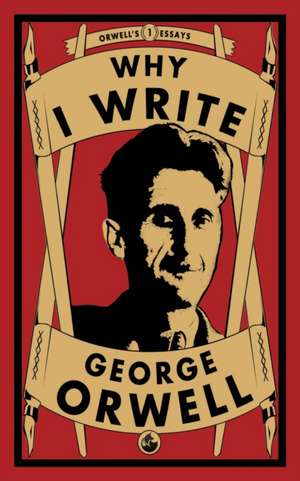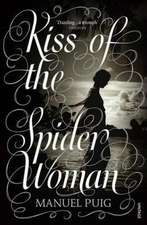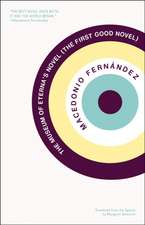Why I Write
Autor George Orwellen Limba Engleză Paperback – 2021
| Toate formatele și edițiile | Preț | Express |
|---|---|---|
| Paperback (3) | 33.82 lei 3-5 săpt. | +3.75 lei 4-10 zile |
| Renard Press Ltd – 2021 | 33.82 lei 3-5 săpt. | +3.75 lei 4-10 zile |
| Penguin Books – sep 2004 | 40.75 lei 24-30 zile | +12.31 lei 4-10 zile |
| Penguin Books – 31 aug 2005 | 75.30 lei 3-5 săpt. |
Preț: 33.82 lei
Nou
6.47€ • 6.73$ • 5.34£
Carte disponibilă
Livrare economică 24 martie-07 aprilie
Livrare express 07-13 martie pentru 13.74 lei
Specificații
ISBN-10: 1913724298
Pagini: 48
Dimensiuni: 131 x 200 x 12 mm
Greutate: 0.09 kg
Editura: Renard Press Ltd
Notă biografică
In 1936, he was commissioned by Victor Gollancz to visit areas of mass unemployment in Lancashire and Yorkshire, and The Road to Wigan Pier (1937) is a powerful description of the poverty he saw there. At the end of 1936 Orwell went to Spain to fight for the Republicans and was wounded, and Homage to Catalonia is his account of the civil war. He was admitted to a sanatorium in 1938 and from then on was never fully fit. He spent six months in Morocco and there wrote Coming Up for Air. During the Second World War he served in the Home Guard and worked for the BBC Eastern Service from 1941 to 1943. As literary editor of the Tribune he contributed a regular page of political and literary commentary, and he also wrote for the Observer and later for the Manchester Evening News. His unique political allegory, Animal Farm, was published in 1945, and it was this novel, together with Nineteen Eighty-Four (1949), which brought him world-wide fame.
George Orwell died in London in January 1950. A few days before, Desmond MacCarthy had sent him a message of greeting in which he wrote: 'You have made an indelible mark on English literature . . . you are among the few memorable writers of your generation.'
Cuprins
The Lion and the Unicorn
A Hanging
Politics and the English Language
Extras
I was the middle child of three, but there was a gap of five years on either side, and I barely saw my father before I was eight. For this and other reasons I was somewhat lonely, and I soon developed disagreeable mannerisms which made me unpopular throughout my schooldays. I had the lonely child's habit of making up stories and holding conversations with imaginary persons, and I think from the very start my literary ambitions were mixed up with the feeling of being isolated and undervalued. I knew that I had a facility with words and a power of facing unpleasant facts, and I felt that this created a sort of private world in which I could get my own back for my failure in everyday life. Nevertheless the volume of serious - i.e. seriously intended - writing which I produced all through my childhood and boyhood would not amount to half a dozen pages. I wrote my first poem at the age of four or five, my mother taking it down to dictation.
























